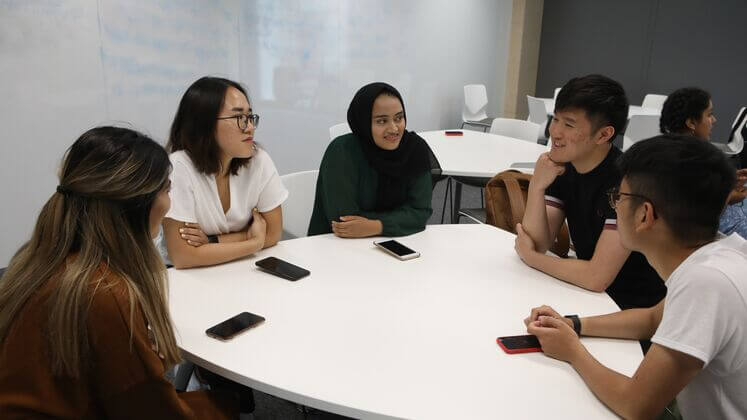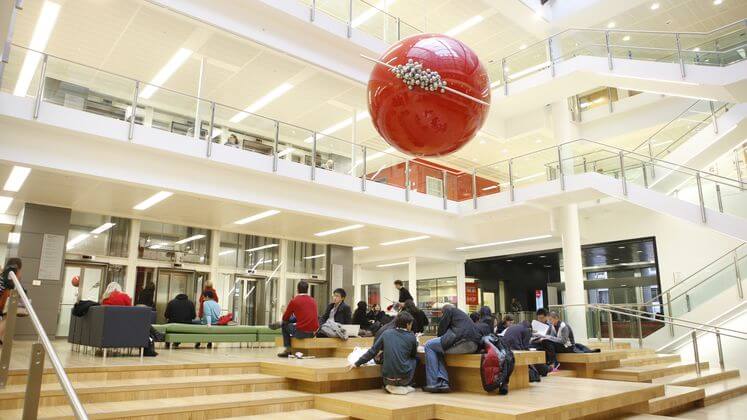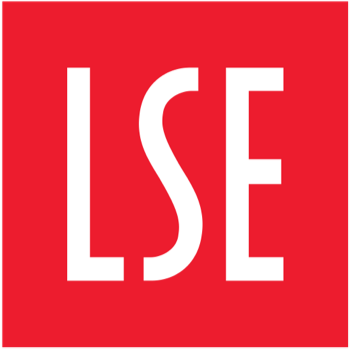German-born Isabell Faad is an entrepreneur and innovator. She’s making waves as the co-founder of Winglet, an online platform for healthcare professionals to access high-quality medical education — fondly dubbed “The Netflix for Doctors and Healthcare Professionals.” It’s a highly successful platform that’s launched across 76 countries, with an ambition to expand further.
How did Faad get her start? By pursuing an Executive Global Master’s in Management (EGMiM).
Now in its 11th year, the EGMiM covers the same essential curriculum as a traditional MBA, but with a twist. Designed for working professionals, it’s taught in short bursts: seven intensive classroom modules covered over one to two weeks, enabling students to live and work full-time in any location worldwide with minimal interruption. The programme itself takes a broader view of how socio-economic and geo-political forces impact organisations — and with this, gives its students direct exposure to the real business world.
It’s a direct benefit of being taught at the London School of Economics and Political Science (LSE). Ranked second in the world for social science and management and third in the world for business and management, LSE has built a reputation for excellence in the world of academia and beyond. It’s the alma mater to a wide range of notable alumni — including the likes of Lucia Klestincova (Policy Assistant to Director at European Commission), Merlia Shaukath (Founder and CEO at Madhi Foundation), and Steve Siauw (Consultant at Gartner).

The Master’s in Management trains students in the fundamentals of managing people and organisations within the real-world context of business today. Source: LSE
This international reputation has opened many doors for LSE’s Department of Management.The EGMiM, for example, starts in London and then taught across two additional locations. Faad’s year saw her travelling to China, where she also managed to visit leading multinationals in Beijing and Tianjin. “We gained invaluable first-hand insights into the institutional framework of the world’s most important emerging economy, the impact of FDI, and market entry strategies of multinationals,” she says.
It’s given Faad the push she needed to advance her career. “After completing my studies at LSE, I gave up my role as head of business development for in-person large-scale medical conferences and started working at Winglet as full-time CEO,” she says. “At Winglet, we are now building a diverse global team and collaborating with leading MedTech multinationals, international experts, and medical institutions to expand further globally.”
Of course, that’s not to take away from the value of LSE’s more traditional master’s programmes. The Master’s in Management (MiM) trains students in the fundamentals of managing people and organisations within the real-world context of business today. It’s taught full-time in London, taking advantage of being at the forefront of an ever-changing business landscape. Still, students get to participate in a business project and international field trip — ensuring that they won’t miss out on the global exposure granted to EGMiM students.

Programmes at LSE’s Department of Management are designed to be applicable to a broad range of situations and careers. Source: LSE
Outside of its compulsory core courses, students are free to tailor their programme however they wish and with the variety of modules on offer, they’re certainly spoilt for choice. International Finance, Strategic Decision Making, Designing Innovative Social Enterprises, Negotiation Analysis — courses at LSE’s Department of Management are designed to be applicable to a broad range of situations and careers. It’s the perfect bridge between practicality and theoretical knowledge.
At LSE, students are promised the best of the best — and nowhere is this more apparent than in the MSc Economics and Management. Led by the esteemed Professor John Sutton, a prominent economist and a consultant for the World Bank since 2000, this programme delves deep into the way firms and markets operate. Its unique selling point? Combining the analytical training that’s apparent in the study of economics with the more applied scope of a management degree.
It’s jointly taught by the Department of Management and the Department of Economics, one of the largest and most respected in the world. Among the department are nine Nobel Prize winners stretched across its current and former staff and students. It’s little wonder that graduates go on to find employment in national and international organisations, government, business, and finance.
Another highly coveted, cutting-edge programme is the MSc Management and Strategy, which places a strong emphasis on economic business analysis. Here, students explore business incentives and governance, organisational design, individual and group decision-making, strategy in competition and markets, and more. Above all, students are trained to deal with future challenges that they may encounter over the course of their careers — making for capable graduates who can recommend intelligent solutions.

The MSc Management and Strategy places a strong emphasis on economic business analysis. Source: LSE
Most graduates go on to achieve great things, but just as many use their knowledge to find meaningful ways to give back to their communities. Javad Golzari founded First Step Consulting, which dedicates much of its efforts to train ambitious university students and recent graduates to work with the company on management consulting projects as volunteer consultants.
“At the heart of our business model is my ambition to give young people the opportunity to demonstrate their potential and to build career skills valued by employers,” he shares. “Many of our volunteers are now working at leading organisations and they often tell us that our programme helped them secure these desirable jobs. It is these moments that drive our team.”
An extensive alumni network — filled with world leaders, Nobel Prize winners, and more — are there to lend their support. Most students call this connection with such individuals a trump card that lasts a lifetime. “It was a unique cross-cultural intellectual adventure which broadened my horizon and provided me with valuable lasting friendships across the globe,” says Faad. “Being associated with LSE as one of the world’s leading universities is a great asset to have.”
Follow London School of Economics and Political Science on Facebook, Twitter, Instagram, LinkedIn, Soundcloud, YouTube, and Flickr











